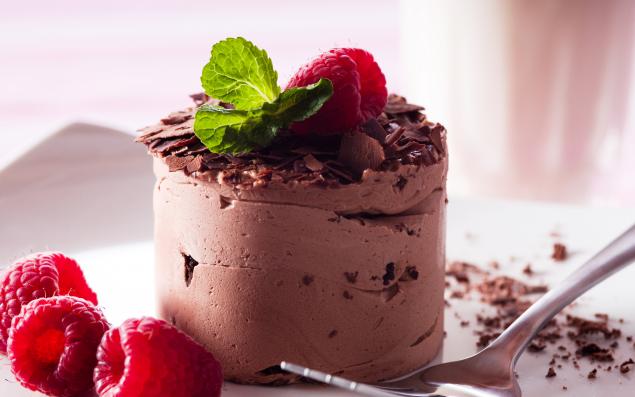775
Why do we eat it?

The default assumption is that we eat only because of the famine. However, in all honesty, how often it is this sense leads us to the refrigerator or the dinner table? Raw foodists are faced with the issue face to face in a year, when the famine in the form as we are used to describe it, no longer feel at all! And then clearly it becomes apparent that the kitchen beckons us long-term habit of ritual, the emptiness in his soul, boredom, laziness, fear of change and unwillingness to work on themselves - in short, anything, just do not hunger
. Therefore, knowing the reasons for his obsessive craving for certain foods and tastes, can reveal quite a specific problem and shady character qualities, to realize the action of forgotten childhood complexes or capricious momentary emotions. And then a sudden urge to eat to satiety cream cake will turn most likely just a natural reaction to a catastrophic shortage of love and tenderness ...

Sweet is no accident associated with pleasure (especially if the parents use sweet as a reward). Pleasure quickly attainable guaranteed, but unfortunately short-lived. The excessive demand for sweet and gives people anxious, lonely, misunderstood ... and proud.
For it is much easier to stick too much chocolate cake than admit it, even if only to himself, the lack of warmth, lack of love and affection. In addition, it is known to be happy in love, we must be able to love and give care to.




Sverhmernoe fat craze, ie the most nutritious and satiating food at disproportionate cost of energy - protection from danger and instability of the external world, "life jacket" for people in need of internal and external comfort, protection and reliable guarantees. In some cases, clearly excessive fat consumption may be a consequence of the strong feelings of guilt experienced by a child, and expressed in the subconscious self-loathing and self-destruction.

Love to dairy products and cream desserts based on the need for care and comfort. On an unconscious level, the milk - it is an absolute sheltered, calm and serenity of early childhood. Therefore, ice cream, yogurt or cheese often desirable, when we feel anxiety, uncertainty, embarrassment or guilt. In addition, the sugar contained in creamy desserts, briefly boosts energy and mood.
Desire something crunch is often a lack of understanding of the situation in the state and emotional distress. Diligently moving his jaws, we help ourselves to cope with stress, "chew" offense ... and consider a response. Often quite crunchy foods are nutritious (nuts, crackers), and thus endowed with more and "masking" function for such feelings as loneliness, dissatisfaction and emptiness.
There is such a gradation, where the need for solid products speaks of "hunger of the mind", and soft - the "hunger of the heart." Crunchy foods prefer overly demanding self identity, whereas people with enough strong inner core often renounce it in favor of the gentle-soft products (puree, mousses, etc.).
In fact, chocolate - recognized 'cure' from all sorts of emotional wounds and disappointments - so seductive precisely because the sum of its parts: it is and sweet, and fat, and cream, and sometimes even and crisp with pepper!

Passion spicy sauces and spices, by the way, indicates a hidden desire to rule or dramatic experience intense emotions. With sharp little we are trying to paint too predictable and monotonous life, compensating for the lack of diversity and the need for new impressions.
At the level of the soul is such a thirst shows low self esteem and lack of confidence, requiring the ability to negotiate on us to find compromises, to learn to be on an equal footing with others, to appreciate each day and the time of his life as a unique and unrepeatable moment.
The habit of spices and irritating taste recipes, seasonings and peculiar people expansive and unrestrained, supporting in this way the tone of "right" degree of passion and a wide range of emotions.

Several similar condition, only with more pronounced side force "generated" by the way, caffeinated beverages and weak strong drink. These funds prefer to tone up (or rather to undermine) their nervous system are people who are in constant psychological stress, can not ignore the problems, take responsibility, often living more and my life ...
The need for a bitter diagnose a tendency to quarrels, aggression, desire to destroy and to argue. Out of this state in the realization of the causal nature of events, knowledge of the law of unity and struggle of opposites, the ability to rise above the everyday situations and see a picture of life in general.
Salt in the occasional use increases the determination and confidence. At the same time constant for salty foods specifically tied those who find it difficult to accept someone else's point of view. Such people are always trying to have the last word and hard to tolerate a situation when something goes wrong, as, in their opinion, should be done.
Love to sour often expresses hidden or demonstrative pessimism, resentment, lack of true joy in life and faith in a brighter future. In its extreme, this is what we call "closed heart". Accordingly, work is required on the level of the soul and spirituality.

She called complex carbohydrates in the form of bread, rice, flour and pasta are particularly attractive in times of imaginary or real dangers. It is believed that the chain reaction in the brain that runs the blocking effects of pain or fear, stimulates the production of substances, "commanding" us to store energy for the future.
And as modern hazards are usually reversible-seeming character, the reserves prove to be superfluous and materialize in the form of fat. In addition, the pastries are often eaten by those who are in dire need of praise and approval of relatives.
Children on traditional diet hyperactive grow
Nutritionist called the 15 combinations of products that enhance the beneficial effects of each other!
























